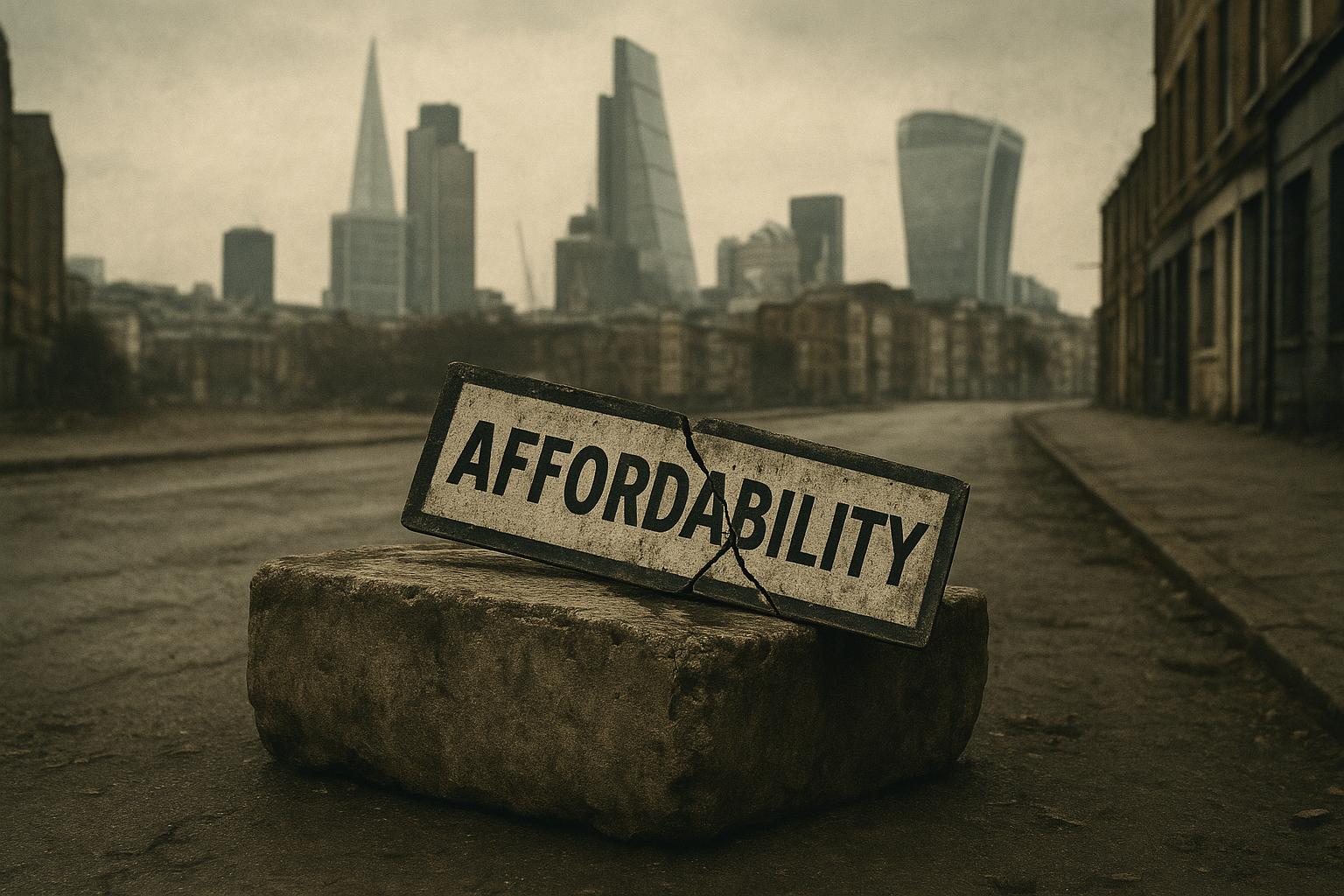The Mayor of London, Sadiq Khan, is preparing to reduce the affordable housing requirements imposed on developers, a move framed as necessary to reinvigorate the city's faltering housebuilding sector. According to well-placed sources at City Hall, proposals are underway to lower the mandated proportion of affordable homes within new developments from 35% to 20%, as the capital grapples with a significant slowdown in construction activity. Recent data revealed that only 3,248 new private-sector homes were started in the first quarter of 2025, underscoring the urgency of stimulating greater building momentum.
Khan, who has emphasized his personal connection to council housing—having been raised on a council estate—and highlighted his administration’s track record of building more council homes than at any time since the 1970s, conceded that changes are needed to "kickstart" housebuilding across London. He acknowledged that the capital, much like the rest of the UK, has seen construction activity "almost ground to a halt," citing a "perfect storm" of factors including soaring material costs, high interest rates, and regulatory delays as significant hurdles.
Despite this, the mayor insists that council and affordable homes remain a priority, with ongoing collaboration with Housing Secretary Steve Reed aimed at releasing a package of reforms to unblock stalled sites and expedite housing delivery. These reforms are expected to be unveiled in the near future and are designed to give the mayor stronger powers over planning approvals.
However, these plans have provoked criticism from opposition politicians and housing campaigners who argue that reducing affordable housing targets primarily serves developers rather than those in need. Zoë Garbett, a Green Party London Assembly Member, condemned the approach as a continuation of a property development system that "turns our city into a playground for the rich" while thousands of London children remain in temporary accommodation. She contended that cutting targets would "protect the profits" of developers and "slash the delivery of desperately needed social homes," urging the mayor instead to demand more government funding for social homebuilding.
Hina Bokhari, Liberal Democrat group leader on the London Assembly, echoed these concerns, warning that the move would exacerbate "record homelessness" and worsen the housing emergency by letting developers off the hook. Conversely, some Conservative members, including Assembly Member Lord Bailey, have supported reducing the targets, describing the current thresholds as a "barrier to viable development" that has stalled housing delivery in one of the most acute crises in rent and mortgage affordability.
The debate occurs against a backdrop of stark housing statistics. Despite ministerial targets aiming for 1.5 million new homes nationwide by 2029, with an expectation of 88,000 annually in London, only 3,000 affordable homes were started in the city in 2023/24. This chronic undersupply contributes to boroughs collectively spending £5.5 million daily on temporary accommodation, underscoring the fiscal and social strain caused by the housing shortage.
City Hall has been seeking other avenues to tackle the crisis. Earlier in 2025, the London Land Fund exceeded its target by enabling over 8,000 new homes, five years ahead of schedule. In parallel, Khan launched a £3.5 billion housebuilding programme aimed at creating 40,000 council homes by 2030 and proposed innovative rent-controlled homes specifically for key workers, addressing housing affordability from multiple angles.
Moreover, in May 2025, the mayor announced plans to consider releasing parts of London’s green belt for development, seeking to balance the need for more affordable homes with environmental protection by focusing on areas near transport links while enhancing biodiversity.
Nevertheless, the pressure to relax affordable housing requirements reveals the complexity of balancing rapid housebuilding with the need to provide genuinely affordable and social housing in a city facing a deep-rooted housing emergency. A Whitehall source acknowledged the severity of the situation, highlighting a substantial 33% drop in homes under construction since 2020 and confirming that London’s housing crisis demands "every lever" be examined to accelerate delivery.
According to a spokesperson for the mayor, these challenging conditions—a legacy of underfunding from the previous government coupled with high construction costs and regulatory delays—necessitate a pragmatic approach. The mayor remains committed to maximising affordable housing delivery but recognises that reforms are crucial to unlock stalled developments and build a "better, fairer, more prosperous London for all."
📌 Reference Map:
- Paragraph 1–3 – [1]
- Paragraph 4–6 – [1], [2]
- Paragraph 7–8 – [1], [5]
- Paragraph 9–10 – [1], [3], [4], [6]
- Paragraph 11–12 – [1]
Source: Noah Wire Services
